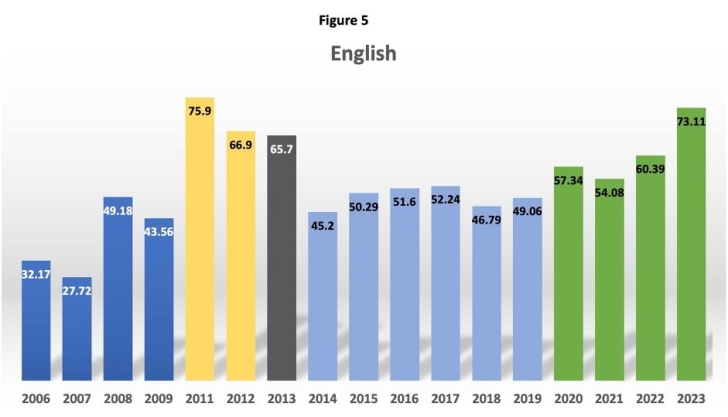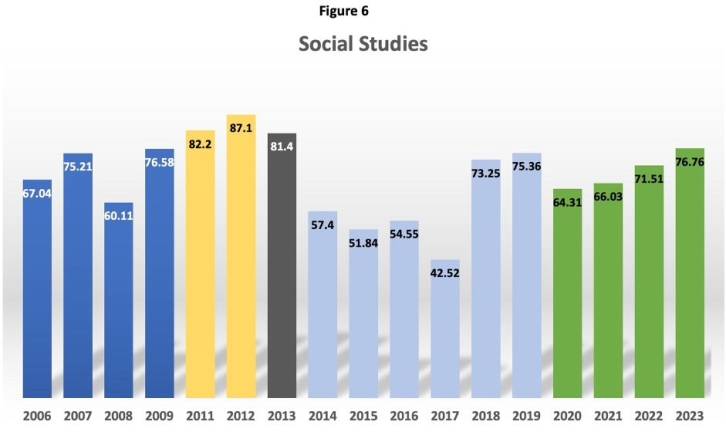
The Dramani-WASSCE drama: A final show down - Occasional Kwatriot Kwesi Yankah writes
In the past few posts, I have been sleep-walking from annual festivities, writing while picking my teeth, belching, and occasionally sniffing the aroma of roasted goat at my finger tips.
Why not? A colleague once said Christ born in a manger should be a good advisory on what meal to promote at Christmas, and that explains his passion for goat khebab.
Yet education news virtually took over the long festive break, compelling me to excavate files and join the storytelling about WASSCE.
- Related articles
- WASSCE results and doubting Dramanis - Occasional Kwatriot Kwesi Yankah writes
- WASSCE-Watch: A curious peek across the fence - Occasional Kwatriot Kwesi Yankah writes
When it began in 2006, WASSCE sounded like a strange acronym, and compelled colleagues to suggest the nearest local cue or mnemonic for the new baby.
Advertisement
The consensus was ‘W’ase’—your father-in-law. If your quarrelsome father-in-law was in the exam hall and you were a candidate, you needed no advice to be of good behaviour.
If WAEC were smart, they would commission fathers-in-law to be invigilators: the easiest way to curb exam malpractice.
Before then, however, let’s see one antidote prescribed by one presidential candidate, His Dramaniship.
A few days ago, he says take Ghana out of the local SSCE to the regional WASSCE, because at the local SSCE where we are, we set our own questions and mark the scripts.
In his words we have been ‘tickling ourselves and laughing’ of late, flattering ourselves with high undeserved grades! WASSCE is the cure.
That video has since gone viral. Haba! What did the long festive break do to the tongues of presidential candidates? In the past, someone would have quickly intervened from behind and whispered in the King’s ear. ‘His Excellency, you are dancing naked; you are dancing naked; please don’t go there.”
But it was too late; the royal tongue slip could not be deleted on any laptop.
Those days, Teacher Biney would have awarded Grade F with the remark: ‘Should have done better being a repeat candidate.’
The truth is Ghana has been with WASSCE since 2006 and has not left. The questions set at the senior high level are from the subregion. We have not returned to SSCE. Indeed His Dramaniship was wide off the mark. I am whispering.
But let me not tickle myself into absent-mindedness. Having tracked maths and science scores in my long epic recently, let me conclude my excavation with English and social studies, then shut up.

Figure 5 (English)
The significance of English cannot be overemphasized. In the senior high schools and universities, English is the medium of instruction, and impacts on performance in all subjects, including maths and the sciences. Poor performance in English may therefore adversely affect results in all the other subjects.
In the chart above showing annual averages, English has undergone similar fluctuations as maths and science; but its early years from 2006 were not as disappointing. While the first two years registered fail grades, this quickly improved before a steep swing by 32 percentage points, to the 2011-2012 bracket of the 4year group.
Even the typically deep dive characterizing the 3year batches is not as evident, and students perform creditably ahead of the 2017 onset of Free SHS. The pre-2017 average of 49% in English is higher than the equivalent period awarded for math (30%) and science (34%). Significantly the highest ever English score of 76% is located in the 4year bracket, and not within the Free SHS band where the highest attained is 73%.
Altogether, while the 2011/2012 4year group averages 71%, the Free SHS group (2020-23) modestly averages 61%. The superiority of the 4year group in English over all other policy cohorts, including Free SHS, is evident.

Figure 6 (Social Studies)
Social Studies has not suffered the drastic fluctuations earlier seen since it has consistently scored high from the onset of WASSCE in 2006. Being largely current affairs, social studies is the students’ favorite, and triggers low anxieties. It averages as high as 70% in the first four years, where averages of all other core subjects (maths, science, English) recorded fail grades over the same period.
Even the typical slump within the 3year cohort immediately after 2013, registers an average of 55%. Its steepest depression is ironically 2017, the onset of Free SHS, but it quickly soars from 2018 and registers an average of 71% from 2018 across the Free SHS exam bracket.
However, the 2020-23 social studies average of 70% falls far below the 85% peak point enjoyed by the 4year cohort by 15 percentage points. The 4year cohort wax highest in social studies.
Overall, the social studies subject scores highest among the subject averages (68%), followed by English (53%), then science (44%), with maths trailing (with 42%).
Conclusions
The 4year and Free SHS packages mark the peak points in WASSCE candidate performance, the 3year segment registering the lowest. The overall significance of the 3year policy, however, should not be lost.
After replacing the 4year regime, the 3year policy rolled on and overlapped with the incoming Free SHS but remained intact within the Free SHS bouquet.
Its retention curbs the trend of total policy reversals whenever new parties take over reins of power. Its importance lies in cost effectiveness.
However, the 3year policy as packaged by Mills had huge redundancy bottlenecks that diminished it to two-and-half years in real time, but was overrun by an all-embracing Free SHS policy bundle that removed the bottlenecks.
The adverse outcome of frequent policy swings by successive governments, is otherwise evident in the dismal result outcomes when Kufuor’s 4year policy was swiftly reversed by Mills without critical appraisal.
Unfortunately, threats of policy change and reversals without recourse to critical appraisal still continue. There have been similar threats to reverse Teacher Licensure Exams, recall past scripts of Free SHS candidates, and ‘rescue’ Ghana from certain public exams without critical analyses of implications.
If these are mere political promises meant to tickle voter ears, they could prove expensive to the national cause and end up doing permanent damage to academic integrity.
While we have sought to link educational policy to exam outcomes in our close analysis of WASSCE results, we have also been interested in superior candidate performance by other cohorts over Free SHS grades. Indeed averages of the 4year cohort in a few cases tower over Free SHS exam scores.
It is however important to add that the nature of the Free SHS policy and the social inequities it seeks to cure, elevates it to a realm that devalues any attempt to determine impact from mere scores. Social growth is not reducible to exam grades.
Finally, explaining improved candidate performance largely through unproven suspicion of exam malpractice is detrimental to national interest. It undermines incentive schemes that reward steady progress and measured leaps across poverty lines.
In any case, exam malpractice has a long history at WAEC, and the exam body annually announces results that have been withheld or cancelled due to malpractice and other irregularities.
But it is in the interest of the sub regional exam body to be sensitive to public outcries, and formulate more stringent procedures to curb the menace.
While this remains work in progress, let tertiary institutions watch the public exam landscape with keen interest. If unsure of integrity within external tests, universities and other institutions have every right to administer additional entrance exams, as was the case mid 1990s at the onset of the new SSS policy.
While WASSCE is used as a prerequisite, university entrance exams and interviews for professionals, could supplement efforts to doubly assure academic integrity.
As for interviews, one should draw lessons from a memorable incident where an interview panel just before rising, asked the brilliant applicant: ‘By the way, who is Ghana’s First Lady?’ The student did not hesitate. The answer?
‘Akua Donkoh.’
Congratulations, said the chairman.
#Joe Amoako
